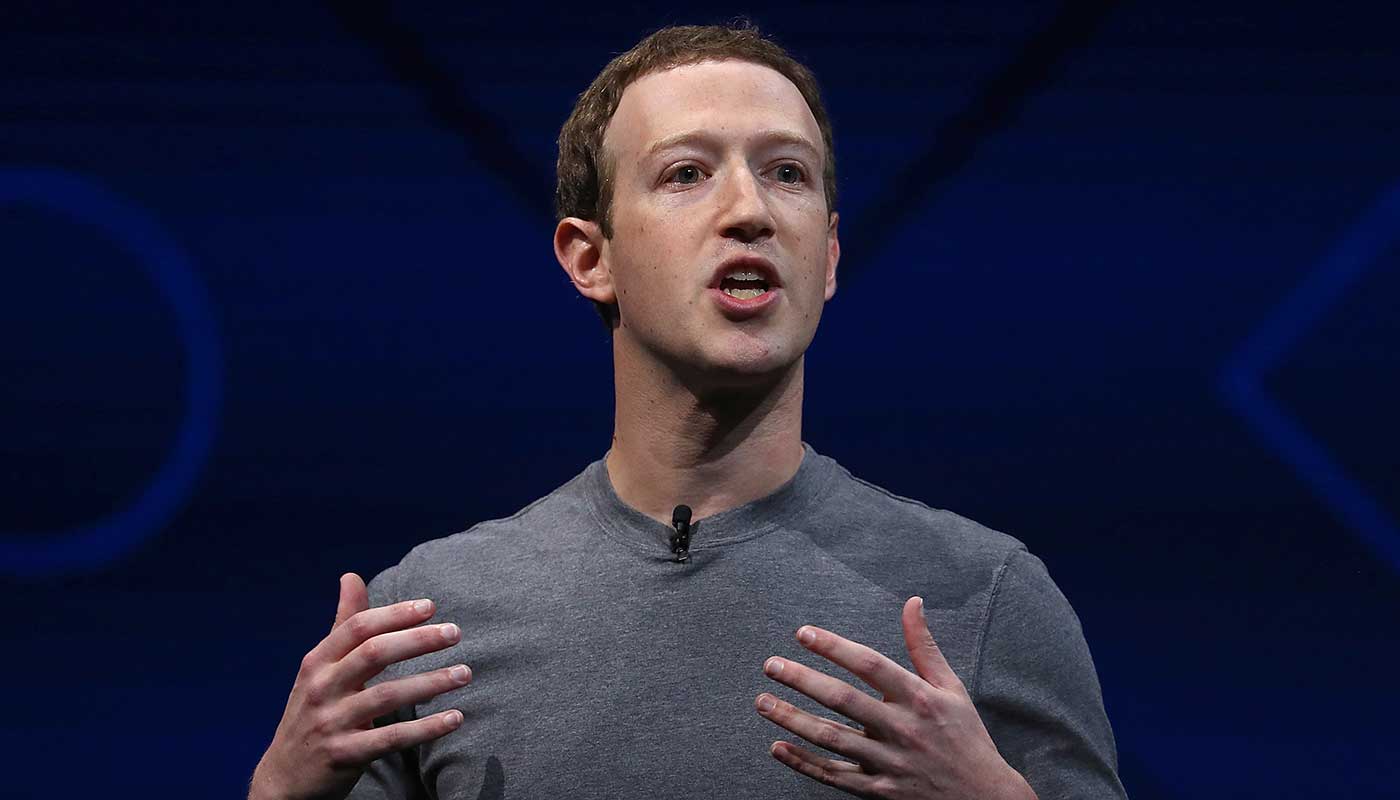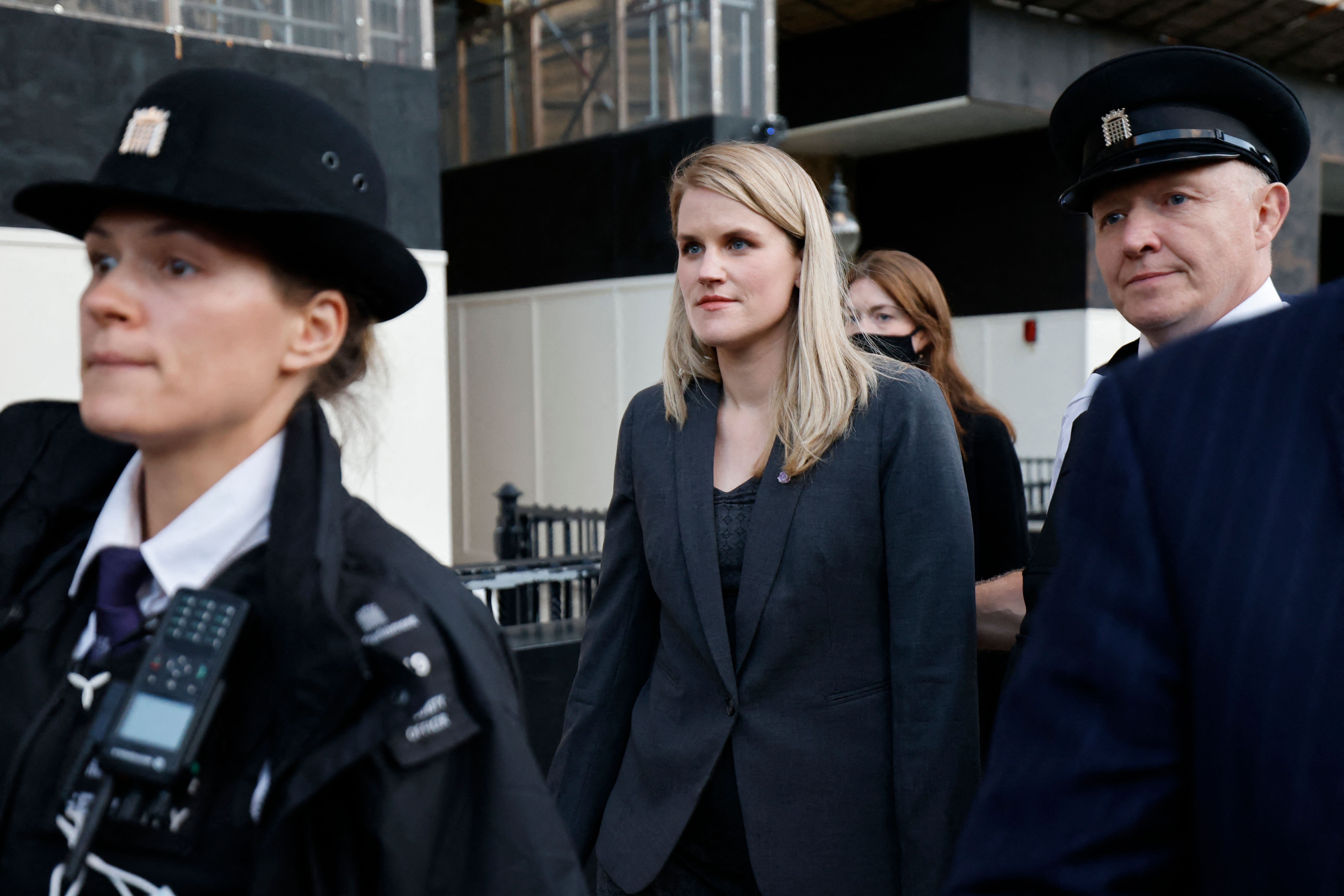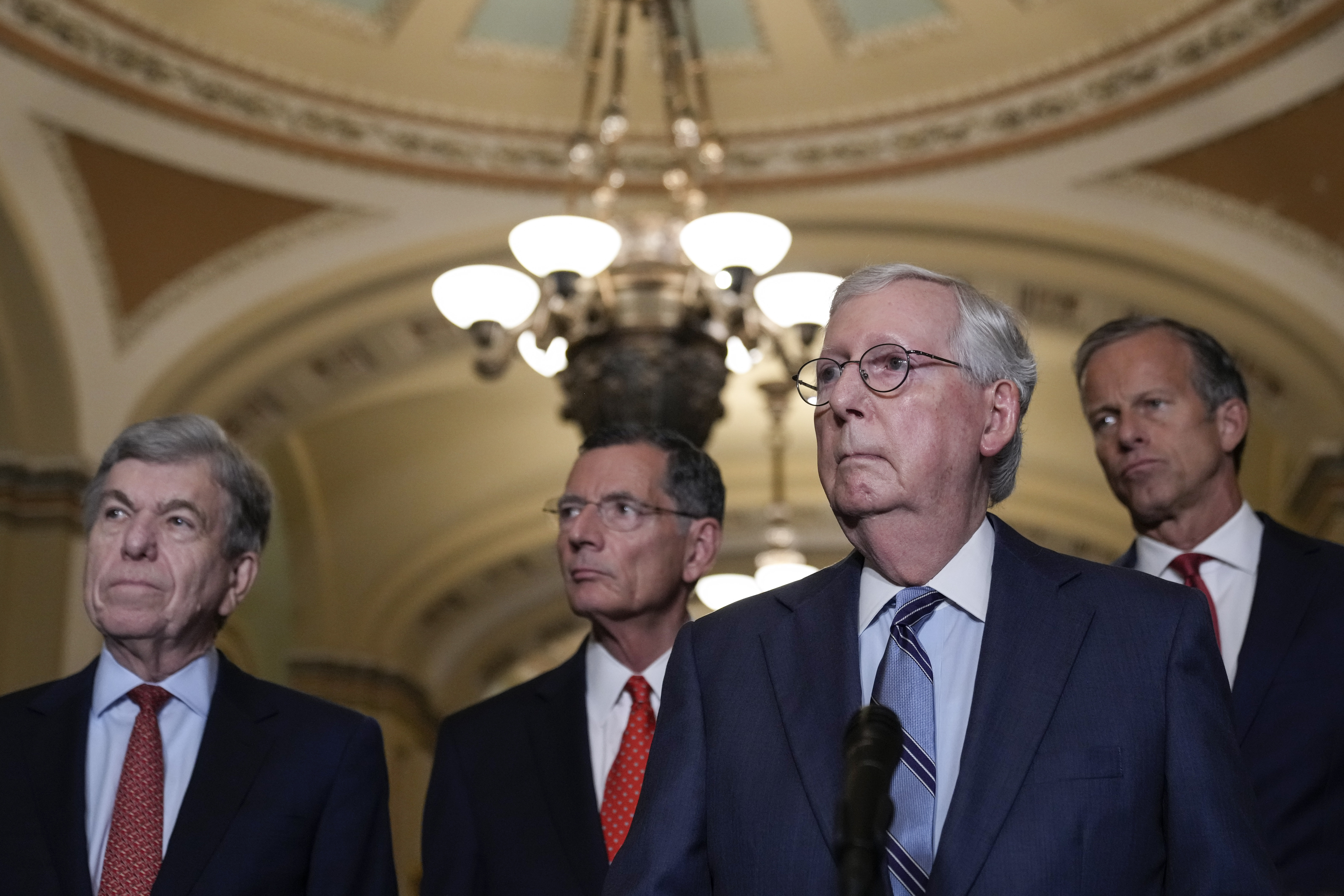Cambridge Analytica scandal: Mark Zuckerberg refuses to appear before MPs
Facebook will send one of his deputies to face parliamentary committee questions

A free daily email with the biggest news stories of the day – and the best features from TheWeek.com
You are now subscribed
Your newsletter sign-up was successful
Facebook chief executive Mark Zuckerberg has declined a request by MPs to appear before a parliamentary committee to give evidence in response to allegations that user data was misused.
The social media behemoth has been “under pressure since the revelations that vast swathes of data were held by British firm Cambridge Analytica”, says Bloomberg, after a researcher obtained the data from a third-party app hosted on Facebook and passed it on to the data analysis firm.
Damian Collins, who leads the Digital, Culture, Media and Sport select committee, invited Zuckerberg to address the concerns around consent and privacy in a letter written “in the strongest possible terms”, says the Independent. He gave Zuckerberg until Monday evening to reply to the request.
The Week
Escape your echo chamber. Get the facts behind the news, plus analysis from multiple perspectives.

Sign up for The Week's Free Newsletters
From our morning news briefing to a weekly Good News Newsletter, get the best of The Week delivered directly to your inbox.
From our morning news briefing to a weekly Good News Newsletter, get the best of The Week delivered directly to your inbox.
Facebook replied with a letter saying that the company “fully recognises the level of public and Parliamentary interest in these issues” which “must be addressed at the most senior levels of the company by those in an authoritative position to answer your questions”.
“As such Mr Zuckerberg has personally asked one of his deputies to make themselves available to give evidence to the Committee,” it said.
Chief technology officer Mike Schroepfer or chief product officer Chris Cox will testify before the committee. Both have worked under Zuckerberg for more than ten years and are among Facebook’s longest-serving executives.
The letter also claimed that only around 1% of downloads of the Facebook-hosted app that allowed Cambridge Analytica to harvest data came from users in the European Union, including the UK.
A free daily email with the biggest news stories of the day – and the best features from TheWeek.com

23 March
Cambridge Analytica scandal: could ad firms force Facebook’s hand?
Advertisers may hold the key to bringing about lasting change at Facebook, as the backlash over the Cambridge Analytica data breach scandal continues.
Last night, Mozilla became the first major company to suspend paid advertising on the platform.
The company, best known for its Firefox internet browser, said news that Facebook allowed the British data analysis firm to harvest and exploit more than 50 million users’ personal data had “caused us to take a closer look at Facebook’s current default privacy settings given that we support the platform with our advertising dollars”.
Facebook’s CEO Mark Zuckerberg broke his silence on Wednesday “to head off a revolt among users and financial backers”, reports The Times.
Advertisers have already called on Facebook to do more to protect user data, combat the rise of fake news and tackle extreme content.
Last month, consumer goods behemoth Unilever threatened to withdraw ads from Facebook and Google over a failure to properly police extremism.
ISBA, a trade body which represents major UK advertisers, is set to meet Facebook later today. The BBC reports that, if the social media giant fails to provide assurances about the security of user data, “advertisers may spend money elsewhere”.
M&C Saatchi boss David Kershaw told BBC Radio 4: “I don't think they're bluffing. They are going to exert real pressure. I think that clients have come to a point, quite rightly, where enough is enough.”
“It is much more likely to be hard money from advertisers rather than consumers running hashtags on Twitter," he said, referring to the #DeleteFacebook and #BoycottFacebook hashtags that have become popular.
If the scandal does lead to increased regulation of social media sites, as many including Zuckerberg have suggested, it could impact the long-term relationship between advertisers and the likes of Facebook.
If advertisers have less data to use or have limited access to third-party measurement, “that could affect how much brands are willing to pay for its ads, and consequently, the social network’s bottom line”, says Digiday UK.
“Even then,” says the media and marketing site, “observers believe the social network will pull through; a regulated Facebook would still be too big and brands hard-pressed to find an alternative technology giant that offers data as rich as its own.”

22 March
Facebook CEO Mark Zuckerberg ‘sorry’ for data breach
Facebook founder and CEO Mark Zuckerberg has apologised to users of the social network over the Cambridge Analytica scandal that has rocked the company and sent its share price tumbling.
In a statement posted to his Facebook page, Zuckerberg admitted Facebook “made mistakes”, and that there is “more to do” to prevent further misuse of user data.
Critics pointed out on social media that Zuckerberg stopped short in his statement of offering a clear apology, however in a subsequent interview with CNN, he said: “This was a major breach of trust, and I’m really sorry that this happened.”
Zuckerberg also said he was happy to appear before Congress to answer questions about the data breach, and appeared open to the idea of regulation of the platform, in terms of advertising disclosures.
“I’m not sure we shouldn't be regulated,” he said. “There are things like ad transparency regulation that I would love to see.”
In an interview with the New York Times, Zuckerberg addressed the five-day delay in making a statement about the scandal, saying there was “a lot of pressure to speak sooner”, but it was “more important that what we said was fully accurate”.
Zuckerberg outlined a number of steps Facebook will be taking to ensure users’ data is better protected in the future, including investigating all apps that have, or have had, access to large amounts of data.
The platform will also further restrict how much data app developers will be able to ask for access to, and will provide users with tools to check and change data access levels for each app they have used.
Apps that haven’t been accessed for more than three months by a user will also lose access to that user’s data automatically.

21 March
Facebook user sues over data harvesting
A US woman is suing Facebook and Cambridge Analytica, alleging that her privacy was violated by data harvesting techniques.
Lauren Price, from Maryland, filed a lawsuit against the companies yesterday in a San Jose, California courtroom on behalf of other US Facebook users whose personal data was used without consent by Cambridge Analytica, Bloomberg reports.
This proposed class-action complaint is the first of “what could be many lawsuits seeking damages over Facebook’s ability to protect user data, and Cambridge Analytica’s exploitation of that data”, says Reuters.
The complaint seeks unspecified damages, including possible punitive damages.
Price accused the two companies of negligence and violating a California unfair competition law. She also said Facebook’s privacy policy had been violated.
“Our client saw a tremendous uptick in political messaging during the campaign on her Facebook page, which she had never seen,” John Yanchunis, a lawyer for Price, told Reuters.
“She had a glimmer of understanding at the time, but now sees there was an attempt to influence her vote.”
“Every Facebook user has an interest in this lawsuit, and the enforcement of their privacy rights,” Yanchunis added.
Price’s complaint was filed a few hours after Facebook was sued by shareholders in San Francisco for its recent drop in stock price in the wake of the Cambridge Analytica scandal. In two days, the social media giant lost nearly $50 billion of its market value.

21 March
Cambridge Analytica chief suspended
The chief executive of Cambridge Analytica, Alexander Nix, has been suspended from his position in the wake of damning video evidence obtained by Channel 4 News.
“Mr Nix’s recent comments secretly recorded by Channel 4 and other allegations do not represent the values or operations of the firm and his suspension reflects the seriousness with which we view this violation,” the company said in a statement.
CNN reports Nix’s suspension is immediate, “pending a full, independent investigation”.
The announcement came shortly before Channel 4 released the second part in its series of exposes on Cambridge Analytica, in which Nix and chief data officer Alex Tayler appear to claim direct credit for the success of the Trump campaign.
“We did all the research, all the data, all the analytics, all the targeting,” Nix says in the video. “We ran all the digital campaign, the television campaign, and our data informed all the strategy.”
Nix also revealed that the company uses a secret, self-destructing email service that automatically deletes any communications two hours after they have been read, to ensure there is “no evidence, there’s no paper trail, there’s nothing”.
The video also shows Tayler and Political Global Managing Director Mark Turnbull at various times discussing the role of political action groups in the 2016 election.
Turnbull appears to claim credit for the “Defeat Crooked Hillary” brand of attack ads at the same time Cambridge Analytica was working with the Trump campaign.
“Coordination between an official election campaign and any outside groups is illegal under US election law,” Channel 4 says.

20 March
Mark Zuckerberg called to explain Facebook data scandal to MPs
Facebook boss Mark Zuckerberg has been called on by a parliamentary committee to give evidence about the use of personal data harvested from the site by Cambridge Analytica.
The tech tycoon has come under fire following reports that the London-based research firm used data from 50 million Facebook profiles after being hired to support Donald Trump’s 2016 presidential election.
Damian Collins, chair of the Digital, Culture, Media and Sport Committee, said Zuckerberg had a duty to respond to MPs’ queries.
In a letter to the networking website founder, Collins “criticised other Facebook executives who had already given evidence to his committee”, the BBC reports.
“The committee has repeatedly asked Facebook about how companies acquire and hold on to user data from their site, and in particular about whether data had been taken without their consent,” Collins wrote.
“Your officials’ answers have consistently understated this risk, and have been misleading to the committee.”
The Tory MP said he now wants to hear from a senior Facebook executive “with the sufficient authority”, adding: “Given your commitment at the start of the New Year to ‘fixing’ Facebook, I hope that this representative will be you.”
Collins has given Zuckerberg until the end of the month to respond.
The call by MPs follows revelations by The Observer, Channel 4 News and the The New York Times detailing how data from the site was taken by Cambridge Analytica without users’ consent.
UK Information Commissioner Elizabeth Denham is to investigate Cambridge Analytica after “the firm was caught in an undercover sting boasting about entrapping politicians, using honey traps and running fake news campaign”, says The Guardian.
Christopher Wylie, who worked with the company, “claimed it amassed the data of millions of people through a personality quiz on Facebook called This is Your Digital Life that was created by an academic”, says the BBC.
Facebook “will hold an open meeting with its employees later to discuss the matter”, says The Verge, adding that Zuckerberg will not attend the discussion. He “has faced criticism both internally and externally for remaining silent” about the revelations.
One employee told the news site: “The prevailing sentiment is, why haven’t we heard from Mark?”
-
 How the FCC’s ‘equal time’ rule works
How the FCC’s ‘equal time’ rule worksIn the Spotlight The law is at the heart of the Colbert-CBS conflict
-
 What is the endgame in the DHS shutdown?
What is the endgame in the DHS shutdown?Today’s Big Question Democrats want to rein in ICE’s immigration crackdown
-
 ‘Poor time management isn’t just an inconvenience’
‘Poor time management isn’t just an inconvenience’Instant Opinion Opinion, comment and editorials of the day
-
 Is mystery book Taylor Swift’s memoir?
Is mystery book Taylor Swift’s memoir?feature And other stories from the stranger side of life
-
 ‘Kirstie Allsopp telling young people off won’t help them get on the property ladder’
‘Kirstie Allsopp telling young people off won’t help them get on the property ladder’Instant Opinion Your digest of analysis from the British and international press
-
 10 things you need to know today: October 26, 2021
10 things you need to know today: October 26, 2021Daily Briefing Facebook whistleblower Frances Haugen testifies to U.K. Parliament, the Biden administration halts Sudan aid after coup, and more
-
 ‘If you couldn’t post a picture of your dinner on Instagram, did you even have dinner at all?’
‘If you couldn’t post a picture of your dinner on Instagram, did you even have dinner at all?’Instant Opinion Your digest of analysis from the British and international press
-
 10 things you need to know today: October 5, 2021
10 things you need to know today: October 5, 2021Daily Briefing Biden calls Republicans "hypocritical" for stand on debt ceiling, Facebook apps return after hours-long outage, and more
-
 ‘Voters like a spot of island nation-state jingoism’
‘Voters like a spot of island nation-state jingoism’Instant Opinion Your digest of analysis and commentary from the British and international press
-
 Instant Opinion: ‘The Queen was right to put the Firm first’
Instant Opinion: ‘The Queen was right to put the Firm first’In Depth Your guide to the best columns and commentary on Monday 20 January
-
 Instant Opinion: Beauty sickness ‘has laid low a generation’
Instant Opinion: Beauty sickness ‘has laid low a generation’In Depth Your guide to the best columns and commentary on Monday 28 October